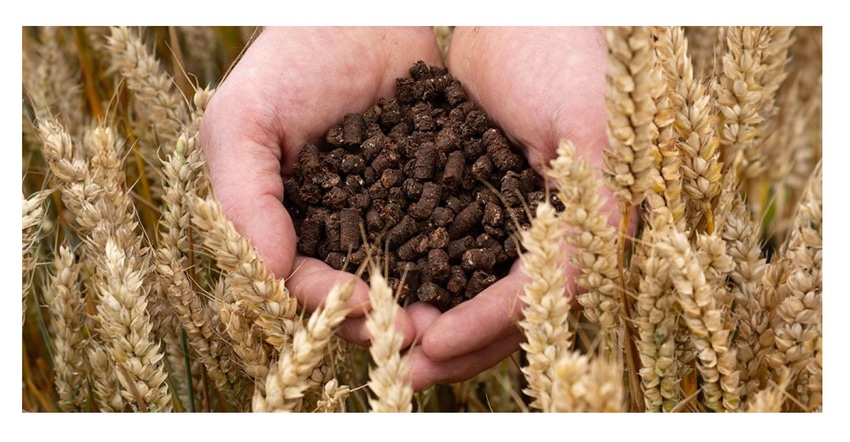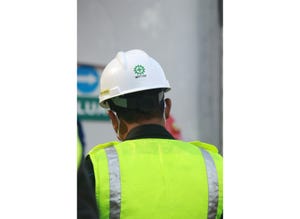Nestlé to Pilot Low-Carbon Fertilizer from Cocoa Shells
The pilot program was designed to evaluate the fertilizer's performance on crop production, soil health, and GHG emissions.
September 12, 2023

As part of Nestlé's 2050 net zero roadmap and its work to spark regenerative agriculture, the company tests many new, innovative ideas. Those that prove effective and scalable are rolled out more broadly. In the UK, Nestlé is launching a pilot to assess whether cocoa shells from a confectionery site in York can be used to create a low-carbon fertilizer.
The two-year trial is designed to evaluate the fertilizer's performance on crop production, soil health and greenhouse gas (GHG) emissions. If successful, up to 7 000 tonnes of low-carbon fertilizer could be produced and offered to farmers in Nestlé's UK wheat supply chain. This amount of fertilizer equates to around 25% of Nestlé UK's total fertilizer use for wheat.
The production and use of conventional fertilizer accounts for approximately 5% of global GHG emissions, and more than half of the carbon footprint of wheat grown in the UK is related to fertilizer use.
Recycling valuable nutrients from waste streams within the food system provides a promising opportunity to create a lower emissions supply chain. Scaling up low carbon fertilizer production can provide farmers with a more sustainable product at a reliable price.
The cocoa shells are supplied by Cargill, which processes the cocoa at the York facility to become key ingredients in iconic products like KitKat and Aero. A trial volume of cocoa shell has been processed and pelletized by Swindon-based CCm Technologies.
"Farmers often find themselves to be among the first groups exposed to global issues, and these risks are then borne by the food system we all depend upon," said Matt Ryan, Regeneration Lead at Nestle UK & Ireland. "We have to find ways to build more resilience into the system and optimizing our use of natural resources is a critical part of this."
"This project is a small, but very meaningful step towards a net zero future, where farmers, local enterprises, and nature all stand to benefit," he added.
The trials, which were designed and are being overseen by York-based Fera Science Ltd., are currently taking place on arable farms in Suffolk and Northamptonshire.
Richard Ling, farm manager at Rookery Farm, Wortham in Norfolk, who supplies wheat to Nestlé Purina, said: "We have now finished harvesting, and we've successfully grown a winter wheat crop using this new fertilizer. We've compared two parts of the field, one which used the cocoa shell fertilizer, and one which used with the conventional fertilizer. There is no significant difference in the yield, so we can see that it works!"
This project is an example of the innovative solutions that Nestlé is investigating to help achieve net zero emissions by 2050. Nestlé has also committed to sourcing 50% of its key ingredients from regenerative agricultural methods by 2030.
Regenerative agriculture is also a key element of Nestlé's Cocoa Plan, as it works closely with farmers in countries like Côte d'Ivoire and Ghana to create a more sustainable supply chain for cocoa.
About the Author(s)
You May Also Like




